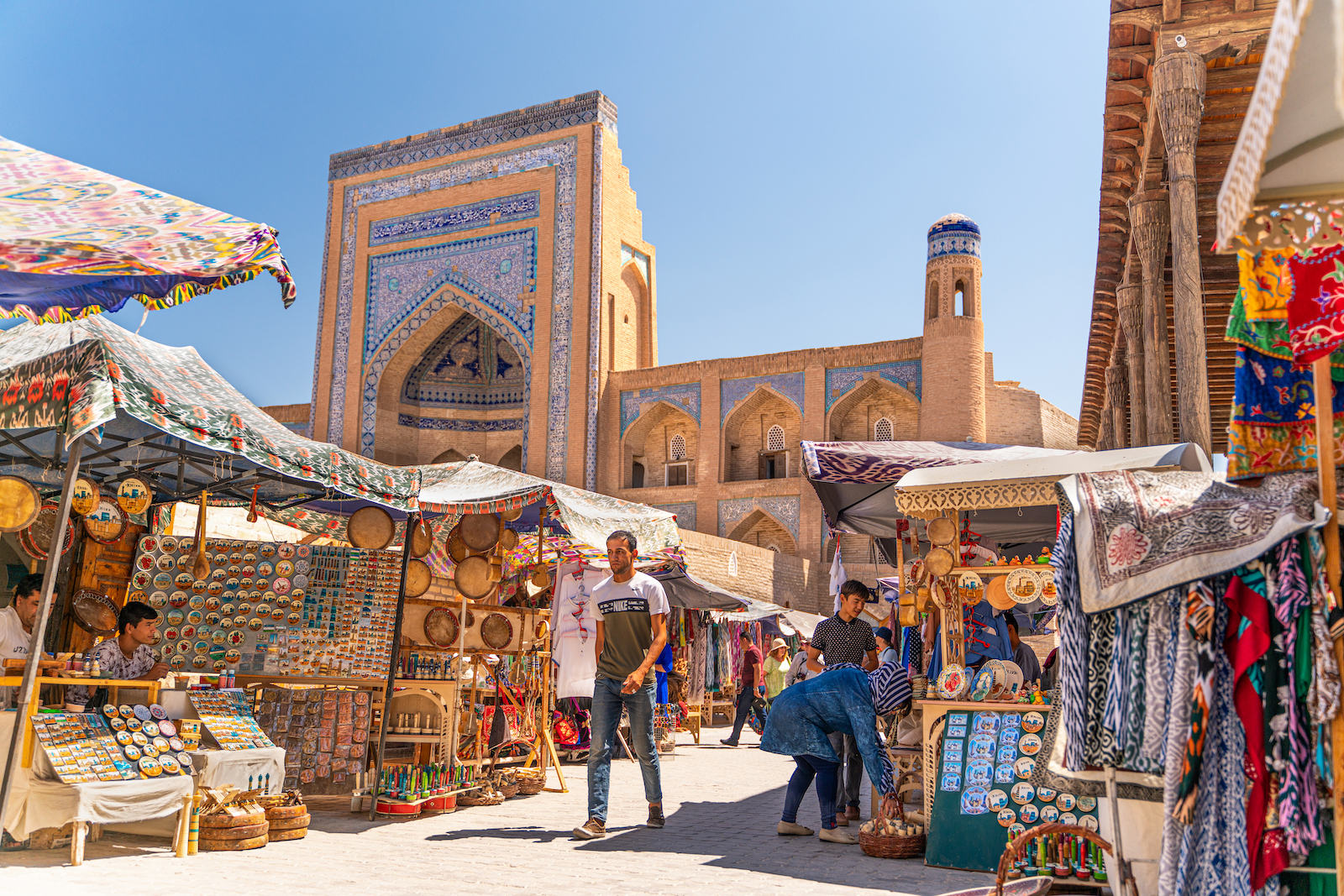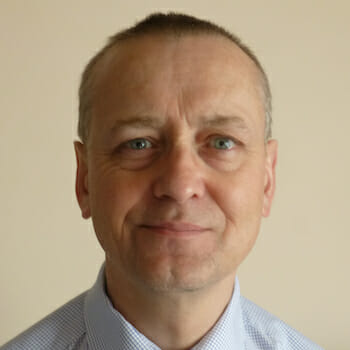
Brussels Paying Close Attention to Outcome of Uzbek Elections
A leading European political figure has confirmed that he will be paying “close attention” to the upcoming parliamentary elections in Uzbekistan, a nation still navigating its post-Soviet transition. In just a few days, voters in the Central Asian country will head to the polls for eagerly awaited elections.
New deputies will be elected to the legislative (lower) chamber of the Oliy Majlis, Uzbekistan’s parliament, as well as to regional, district, and city councils. David McAllister, a senior German MEP and the Chairman of the European Parliament’s powerful Foreign Affairs Committee, is among those closely following the outcome.
In an interview in his Brussels office, the veteran MEP explained, “The European Parliament will not observe the upcoming Parliamentary elections in Uzbekistan. This task will be carried out by ODIHR [the Office for Democratic Institutions and Human Rights]. In previous elections, a number of irregularities were observed during election day.”
McAllister, a center-right deputy and member of the European People’s Party—the largest political group in the European Parliament—added, “Assessing the efforts made by the authorities to introduce safeguards in this regard will be one of the key tasks of ODIHR election Observation mission.” McAllister added, “We will pay close attention to their recommendations.”
In a notable development for Uzbekistan, a country unaccustomed to such practices, a televised pre-election debate featuring party leaders was held on October 5. While such debates are routine in Western democracies, this was a first for Uzbekistan, marking a significant moment in its evolving political landscape. Broadcast in four languages—Uzbek, Russian, English, and Karakalpak—the debate aired live on multiple television channels and was streamed on social media platforms, including Facebook. Modeled on the BBC’s long-running Question Time, the debate featured a diverse panel representing various social groups, including youth, women, ethnic minorities, and civil servants.
An organiser said the idea was to illustrate the political parties’ wish for these to be directly involved in the political process and to be “innovate, creative, mobile and interactive. We hope this will have proved useful for voters in making their political choice.”
The elections, scheduled for October 27 under the slogan “My Choice is My Prosperous Motherland,” are expected to be closely watched, particularly by those claiming little distinction between the political parties.
On election day, voters will elect 150 deputies to the lower chamber of parliament, 56 members of the upper chamber, and representatives to 208 district and city councils. Approximately 30,000 candidates are expected to participate, and more than 70,000 local and foreign observers will monitor the process.
In the last parliamentary elections in 2019, held under the banner “New Uzbekistan – New Elections,” the Movement of Entrepreneurs and Business People—Uzbekistan’s Liberal Democratic Party—emerged as the leading political force. The National Revival Democratic Party followed with 36 seats, while the Social Democratic Party “Adolat” (Justice) secured 24 seats. The People’s Democratic Party won 22 seats, and the Ecological Party took 15 seats.
This year, Uzbekistan’s electoral system has undergone reforms, with additional checks and balances introduced in both the government and the judiciary. Nevertheless, critics remain. Otabek Akromov and Bekzod Zakirovt of The Diplomat have argued that while reforms have improved transparency, the five parties participating in the election remain broadly pro-government and advocate similar political agendas.
Yet, they acknowledge that “It is fair to conclude that the reforms initiated under the new government have undeniably injected new life into the political landscape, allowing registered parties to engage more actively than before.”
Zayniddin Nizamkhodjaev, Chairman of the Central Election Commission, has defended the diversity of choices available to voters, stating, “[citizens will have] a range of choices as we would expect in any properly functioning democracy.” He added, “The divergent ideologies represented will promote a healthy debate on which direction our economy should take and will ensure accountability for the parties who ultimately hold power.”
Five political parties are contesting the election: the Liberal Democratic Party of Uzbekistan (UzLiDeP); the National Revival Democratic Party (Milliy Tiklanish); the Ecological Movement of Uzbekistan (EMU); the People’s Democratic Party; and the Social Democratic Party “Adolat” (Justice).
Here’s a closer look at these parties:
People’s Democratic Party (PDP)
Founded in 1991 to support those needing targeted social assistance, the PDP is the largest party in Uzbekistan by membership, boasting around 520,000 members. More than half are women, and a significant portion are under 30. The PDP, a successor to the Communist Party of the Uzbek SSR, focuses on policies that aim to protect vulnerable populations.
National Revival Democratic Party (Milliy Tiklanish)
Founded in 1995, the National Revival Democratic Party (NRDP) merged with the National Democratic Party (Fidokorlar) in 2008. NRDP’s platform encourages Uzbeks to foster national pride and independence, particularly from Russian influence. The party currently has around 430,000 members, 46% women, with 39% under 30.
Social Democratic Party “Adolat” (Justice)
Founded in 1995, Adolat seeks to strengthen democratic processes and promote national independence. It emphasizes support for trade unions and low-income families. Adolat won 24 seats in the last parliamentary elections and has a history of growing influence within Uzbekistan’s political landscape.
Liberal Democratic Party of Uzbekistan (UzLiDeP)
UzLiDeP, founded in 2003, is the dominant political force in Uzbekistan. The party advocates for a free-market economy and strong civil society. Its base is entrepreneurs, small businesses, and farmers. UzLiDeP secured 52 seats in the last elections and remains a formidable presence in the country’s politics.
The Ecological Movement of Uzbekistan (EMU)
Founded in 2008, the Ecological Movement of Uzbekistan focuses on environmental protection and public health, particularly on issues like the drying up of the Aral Sea. The party aims to strengthen environmental legislation and enhance international cooperation in addressing environmental challenges.
The OSCE’s Office for Democratic Institutions and Human Rights (ODIHR) will oversee the elections. Katya Andrusz, spokesperson for ODIHR, told this publication that ODIHR is actively engaged with Uzbekistan’s authorities and civil society to support democratic development.
“All OSCE states have committed to upholding democratic principles and human rights, and ODIHR remains in constant dialogue with Uzbekistan on a wide range of issues,” Andrusz explained. She highlighted recent joint initiatives, including a legal review of laws governing freedom of expression and media, as well as training for high-ranking police officers on policing peaceful protests.
Andrusz emphasized that ODIHR’s election observation mission in Uzbekistan will assess whether the vote adheres to international standards for democratic elections. This is ODIHR’s 11th election observation mission in Uzbekistan.
ODIHR’s mission includes a core team of 14 international experts based in Tashkent and 26 long-term observers deployed across the country. The organization also plans to bring in 300 short-term observers shortly before election day.
The mission’s focus will encompass the entire electoral process, from pre-election campaigning to post-election activities. Key areas of scrutiny include the legal framework, the conduct of campaigns—particularly on social media—the functioning of election administration, the resolution of disputes, and media coverage. Observers will also assess the implementation of ODIHR’s previous recommendations.
Interest in these elections is reportedly higher than in previous years, with many seeing Uzbekistan as trying to break away from its Soviet past. The challenge now will be ensuring that the elections are declared free and fair, a vital step in the nation’s continued progress towards a fully functioning democracy.
